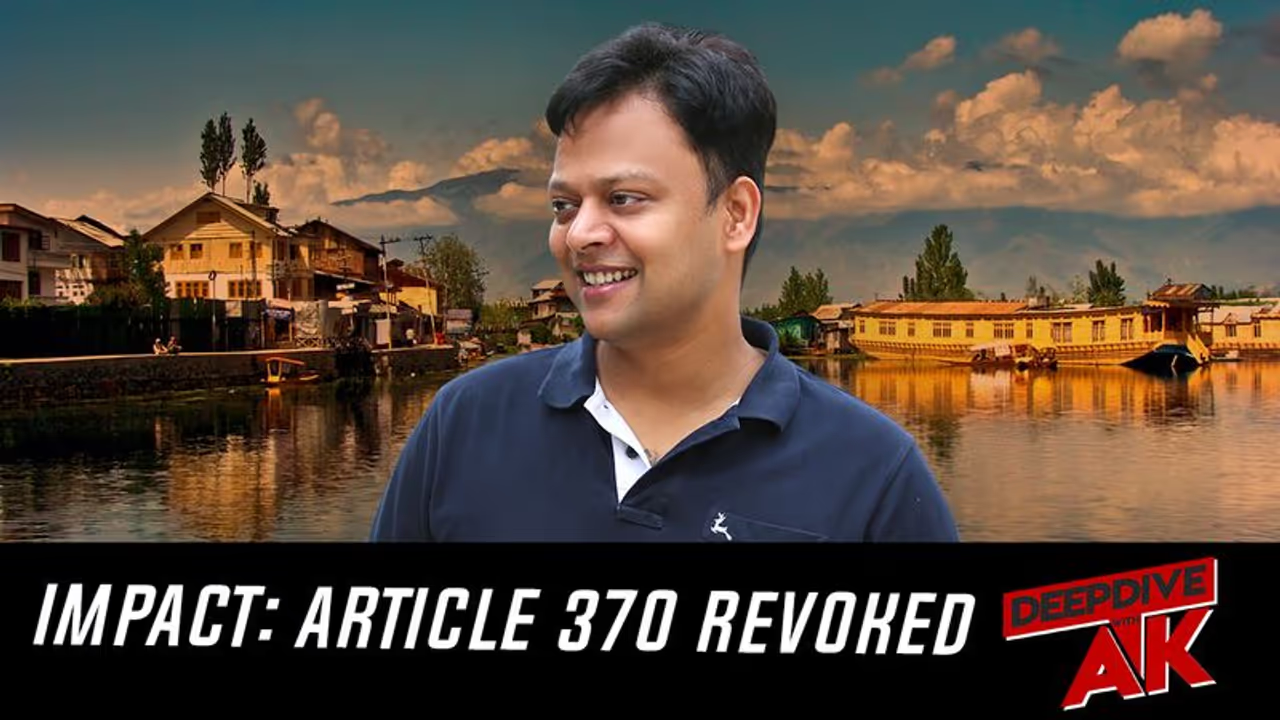Abhinav Khare deep dives into the abrogation of Article 370 has been a huge step in the right direction. However, the strategy that the Modi government adopts to handle the situation in Jammu will determine its success.
Finally, the historic decision has been taken. Article 370 and 35A, or in other words, the special status given to Jammu and Kashmir, has been abrogated on June 5, 2019. This could be Narendra Modi’s boldest move yet. They have also announced that Jammu and Kashmir will be bifurcated into two Union territories - The UT of Jammu and Kashmir, which will have a legislature and the UT of Ladakh, which will not have a legislature.
Deep Dive with Abhinav Khare explores why this move has been strategically significant:
- First, the people of Jammu and Ladakh have always complained over the hegemonic rule of Kashmiri rulers. Now, with the bifurcation, their long-term demands seem to be fulfilled.
- Secondly, making Jammu and Kashmir a UT will directly give control to Delhi for all its decisions
- Thirdly, any policies and agendas can be implemented in the valley without any opposition
- Fourthly, the last couple of weeks have seen a lot of international leaders especially, Donal Trump being interested in being a mediator for the Kashmir issue. By this move, India has proved that Kashmir was, is and will always be just a bilateral issue.
India has always adopted a defensive approach towards Kashmir and has tolerated terrorism for way too long in hopes of keeping the bilateral ties with its neighbour safe. But now time has come to be on the offensive. India now has no other standing issues in Kashmir except for chasing out the Pakistanis from PoK including Gilgit and Baltistan.
However, these recent developments have posed a few questions regarding their constitutional validation.
The Presidential notification on August 5 inserted a new provision in Article 367 of the Constitution to remove the ambiguity of article 370(3) where it replaced the “Constituent Assembly of the state” with “Legislative Assembly of the state”. Since, Jammu and Kashmir do not have a legislature now, the function was performed by the Governor.
This raises two issues,
- Both Article 370(1) which gives power to the President and Article 370(3) which speaks of the power of the Constituent Assembly are non-obstante clauses.
- This has been performed by a Governor who constitutionally does not have as much power as elected representatives.
The discussion over the validity of these decisions now rests with the Supreme Court but now, what the government needs to tackle is the aftermath of this announcement.
There will be an obvious uproar in the valley but since the decision was a planned one, we can expect the security machineries to be well-equipped for Pakistan may hop on to this decision to gain limelight in the international circles but will definitely not escalate situations fearing further financials bans. It is also essential for the government to not alienate the Kashmiris. We should view this decision primarily from the security point of view and we should also include the Kashmiris in this process.
We should not view this decision as a victory or a loss for anyone, rather we should look at it as a win-win situation for all. The abrogation has been a huge step in the right direction but the strategy that the government adopts to handle the situation will determine its success.
About Abhinav Khare
Abhinav Khare is the CEO of AsiaNetNews Network and also the host of a daily show named Deep Dive with AK. AsiaNetNews is a leading media group of south India with highly valuable brands like AsiaNetNews, Suvarna News, Kannada Prabha, IndigoMusic, Indigo Radio, MyNation, NewsFast, IndigoXP Music lounges.
He is a proud father of two beautiful daughters and resides in Bengaluru with his loving family and a lifetime collection of books and gadgets. An avid traveller, he has already pinged more than hundred cities from 5 major continents around the globe.
A tech entrepreneur, who is passionate about policy, technology, economy and philosophy from ancient India. His favourite pastime is to research synergy between these facets of society. He earned his qualifications from the top 10 global universities; an MS Engineering from the ETH Zurich and an MBA Finance from the London Business School.
